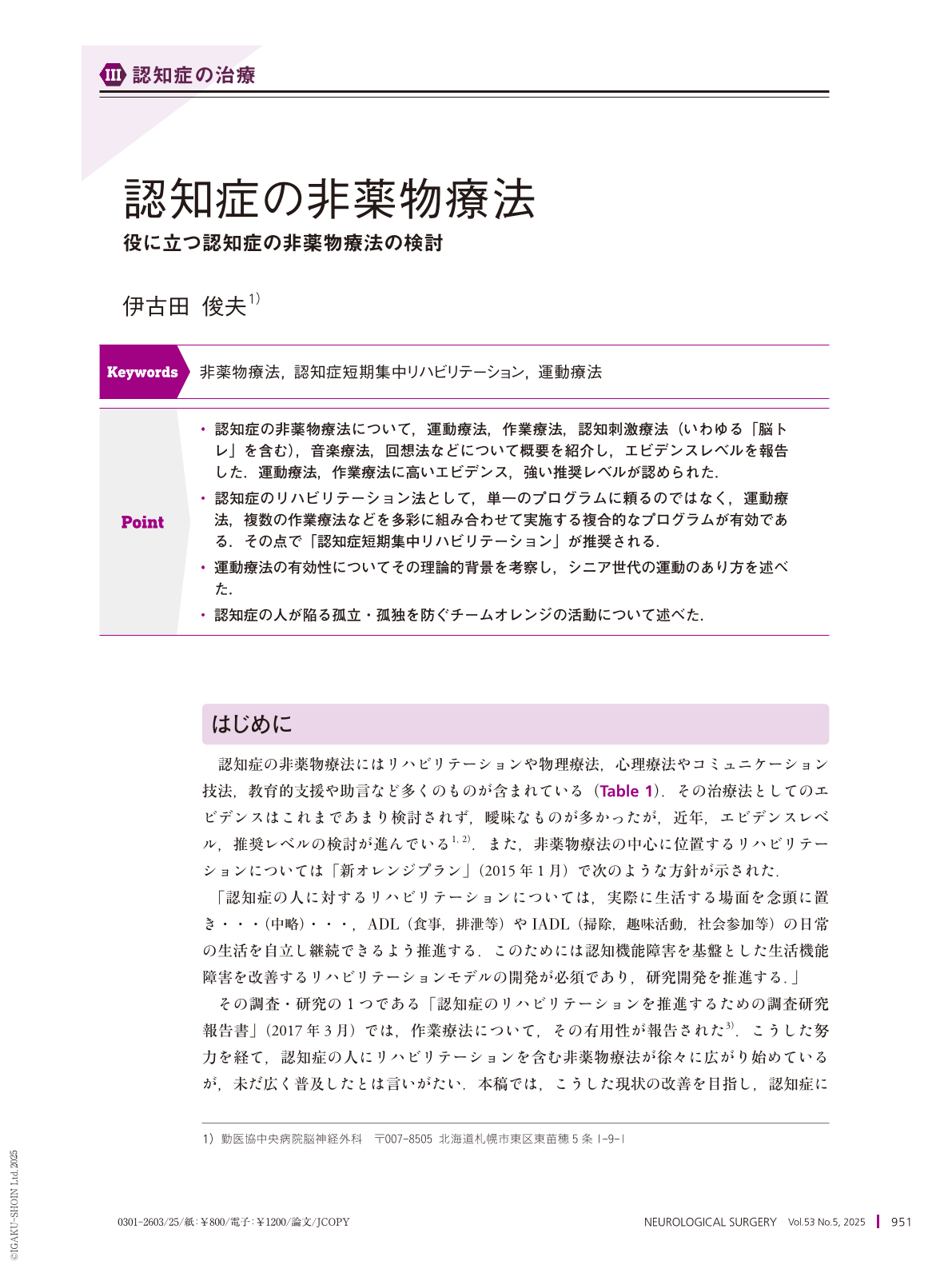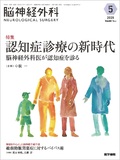Japanese
English
- 有料閲覧
- Abstract 文献概要
- 1ページ目 Look Inside
- 参考文献 Reference
Point
・認知症の非薬物療法について,運動療法,作業療法,認知刺激療法(いわゆる「脳トレ」を含む),音楽療法,回想法などについて概要を紹介し,エビデンスレベルを報告した.運動療法,作業療法に高いエビデンス,強い推奨レベルが認められた.
・認知症のリハビリテーション法として,単一のプログラムに頼るのではなく,運動療法,複数の作業療法などを多彩に組み合わせて実施する複合的なプログラムが有効である.その点で「認知症短期集中リハビリテーション」が推奨される.
・運動療法の有効性についてその理論的背景を考察し,シニア世代の運動のあり方を述べた.
・認知症の人が陥る孤立・孤独を防ぐチームオレンジの活動について述べた.
Recent studies have reported the types, evidence levels, and recommendation levels of non-pharmacological therapies for neurocognitive diseases.
(1) An overview of non-pharmacological therapies for neurocognitive disease, including exercise, occupational, cognitive stimulation (including so-called “brain training”), music, and reminiscence, was introduced, and the evidence levels were reported. Exercise and occupational therapies were found to have a high level of evidence and strong recommendations.
(2) As a dementia rehabilitation method, rather than relying on a single program, a complex program that combines exercise therapy and multiple occupational therapies in a variety of ways is more effective. Thus, “short-term intensive dementia rehabilitation” was recommended.
(3) The theoretical background of the effectiveness of exercise therapy was considered and the ideal form of exercise for the senior generation was described.
(4) Team Orange's activities for preventing individuals with dementia from becoming isolated and lonely were described.

Copyright © 2025, Igaku-Shoin Ltd. All rights reserved.


